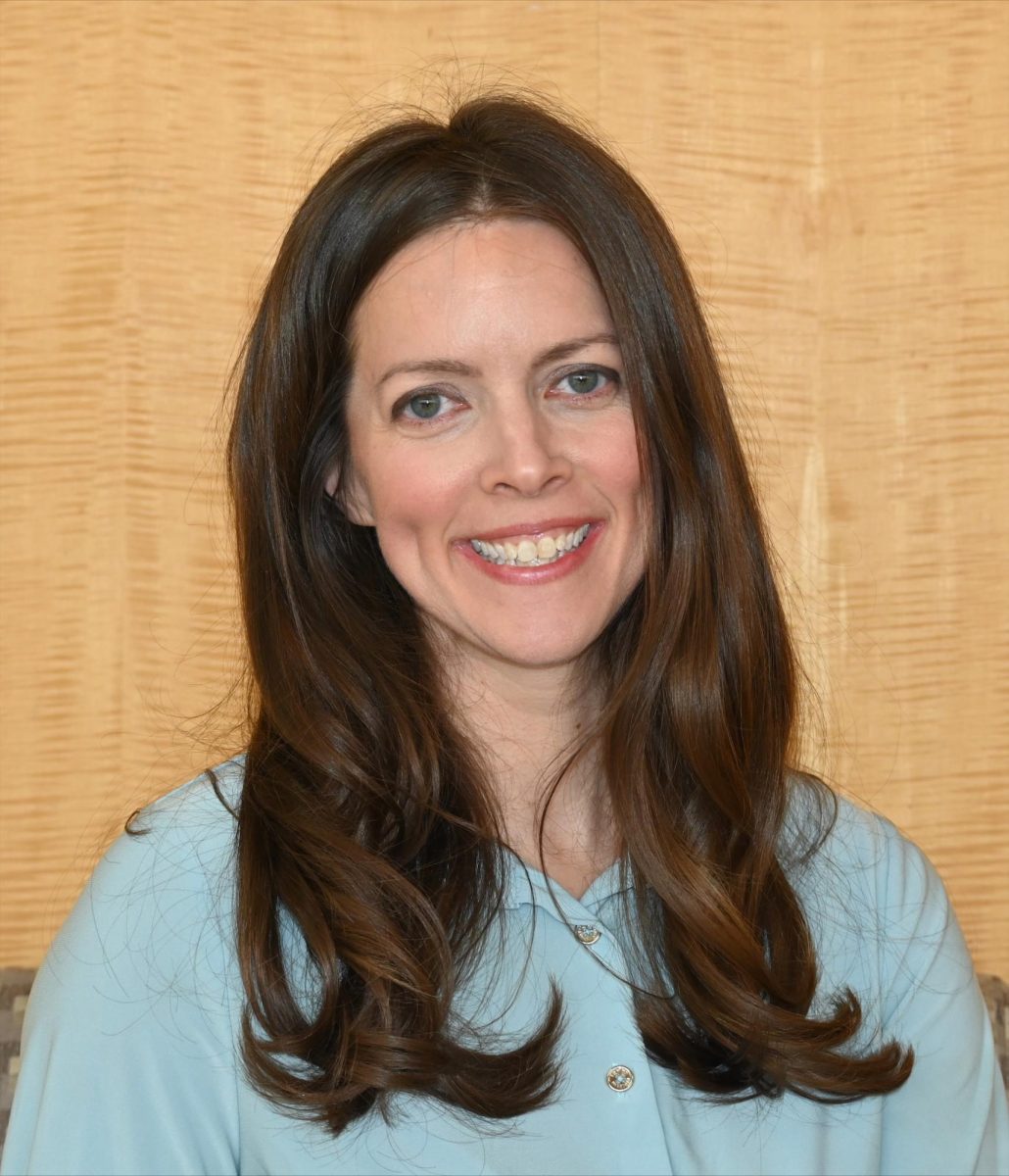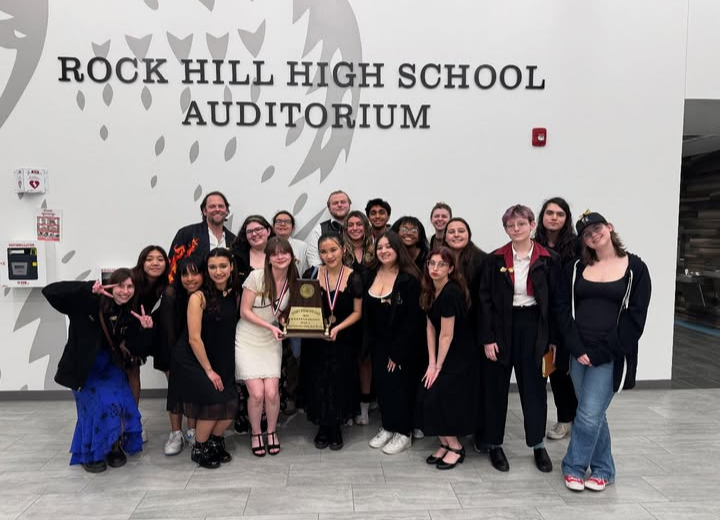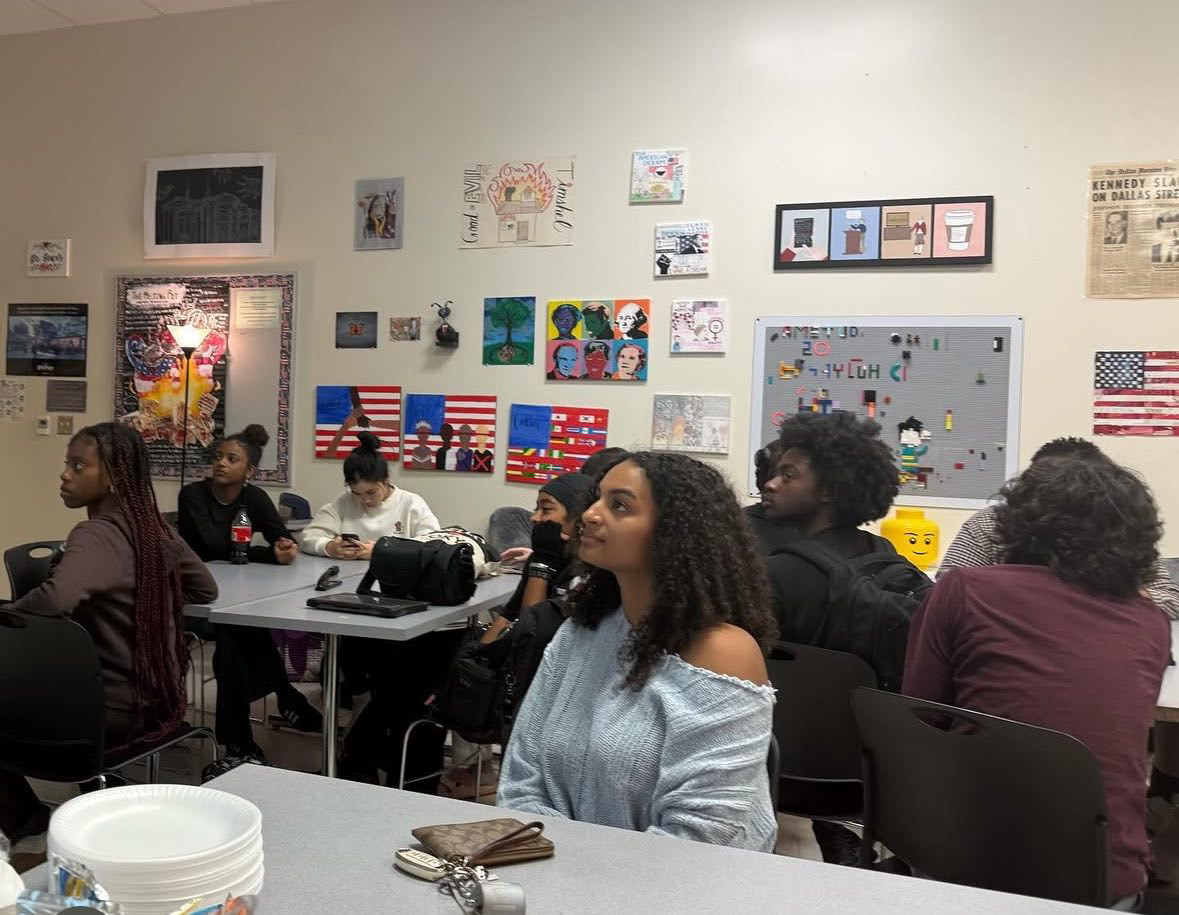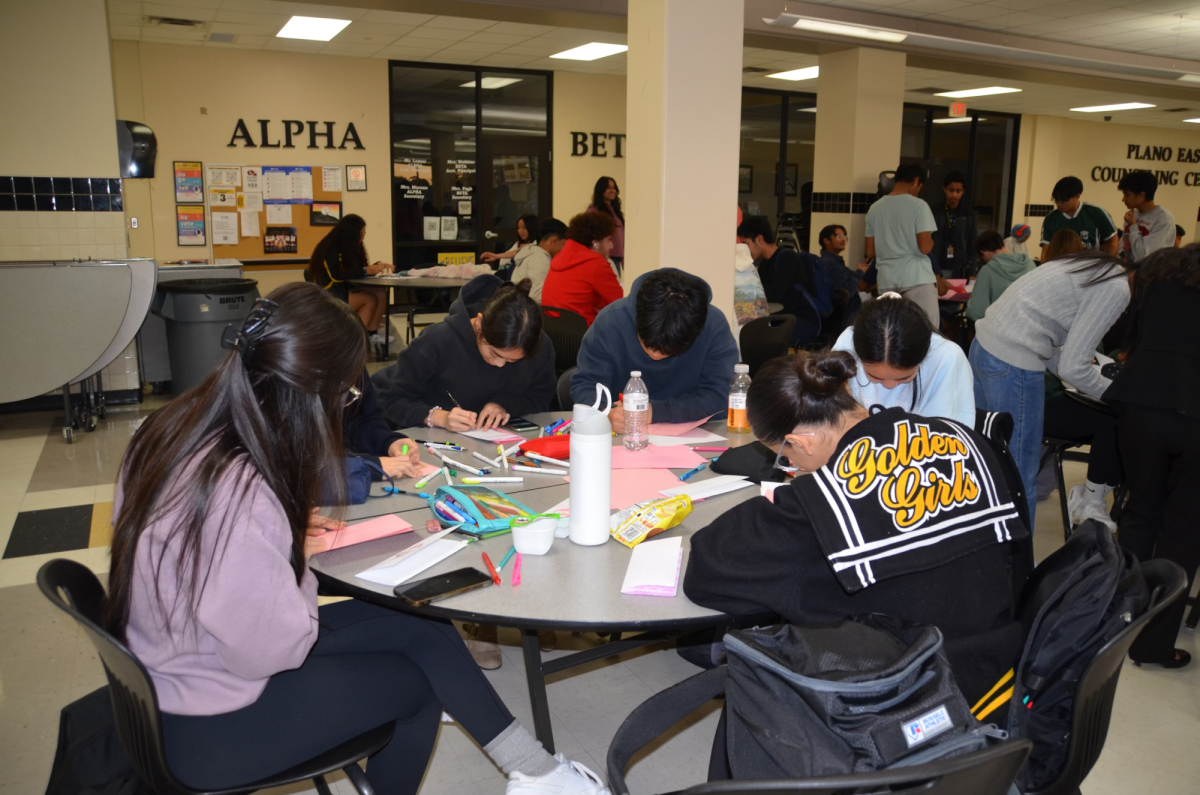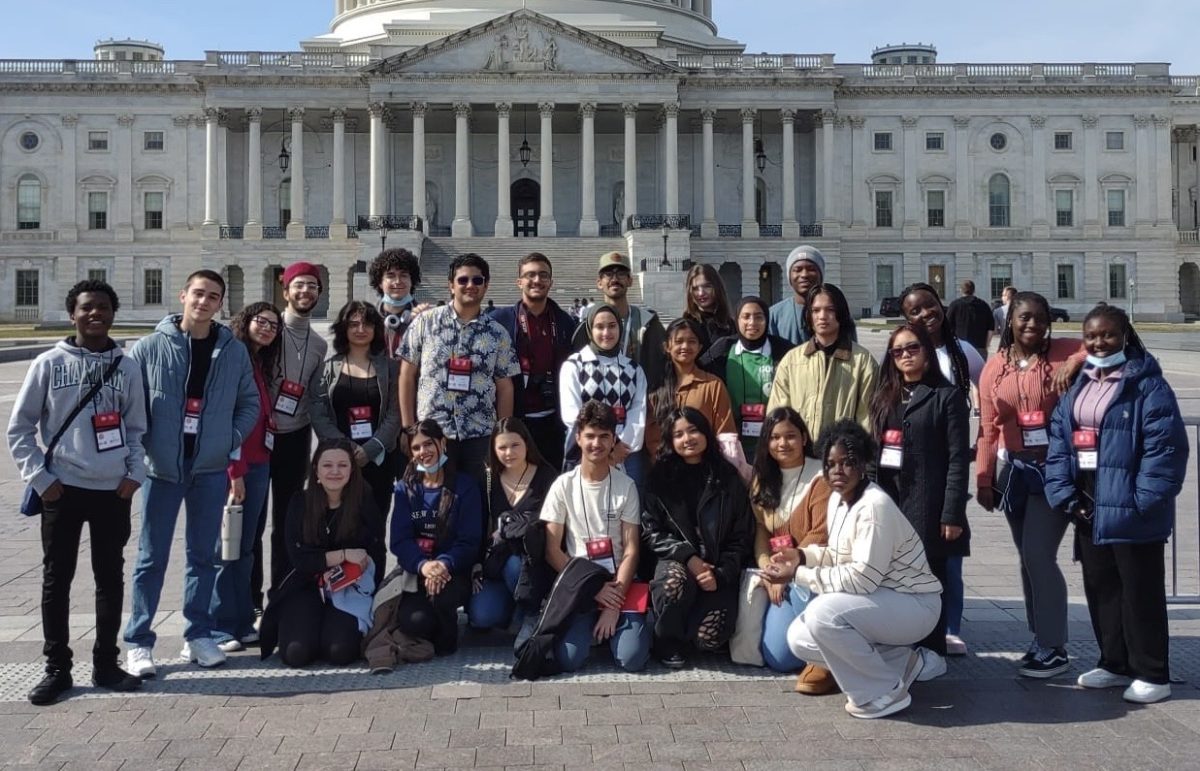From the outside, English teacher Lensey Sardar’s classroom may seem like any other. Rows of desks fill the space while Sardar’s corner resides at the front. Upon closer inspection, though, the room’s comforting atmosphere mimics that of a home, with natural light streaming through the windows and plenty of decorative green plants. One day, Sardar’s computer pings with an unexpected notification; it is an email from the school announcing she is one of the five finalists for Teacher of the Year.
“[Winning Teacher of the Year] was definitely not on my radar,” Sardar said. “I just saw that email, then administrators and some other leaders here on campus came in to observe [classes], and I was shaking and [thinking] ‘Oh my gosh.’ And then we had our faculty meeting during semester exam week, and they read through some of the teachers’ comments and announced my name!”
Though the comments did not say who they were from, many mentioned how she revamped teacher meetings to make them more fun and meaningful compared to what they were in the past. Sardar is the team lead for English Ⅳ, and she also works with the IH English Ⅰ teachers. Now, teachers can come and feel safe enough to cry or vent about a particular issue, laugh it off as they understand that it is part of life, and move on with their day.
“I’ve encountered enough in my life to understand the importance of safety,” Sardar said. “Whenever we have some sort of emotional safety, that’s whenever we feel supported. That’s whenever we can thrive and be our best. So I want the teachers that I’m around to feel that way as well.”
Hailing from a small town of one thousand people, Sardar has always valued personal connections. There, everybody knew each other, and her parents were also her teachers, so it comes as no surprise she loves to establish secure connections with her students.
“[One of my main approaches to teaching is] getting to know the kids,” Sardar said. “I’ve taught every level of English, but I think what makes it the most fun is getting to know the class, getting to know the individual, and then tailoring the curriculum to that particular class.”
However, her plan was not always to go into teaching. Sardar started off studying broadcast journalism at Texas Tech, but in a scary turn of events, she experienced a seizure in the middle of a live broadcast.
“It’s been a part of my life since I was a baby,” Sardar said. “I spent a lot of my twenties researching epilepsy because I had so many anti-convulsant medications and they had such adverse effects. As a result, I was researching different ways that I could get off the anti-convulsants and stop my seizures, and I did. I haven’t been on those medications for 17 years. It’s a miracle.”
After the broadcast, Sardar was photosensitive. She knew she had to turn to a different career path. Luckily, she stuck with her love for English, and when Dr. Vickie Hester hired her to be a research assistant, Sardar found the world of secondary education. After using her English skills to help her with research in her daily life, Sardar now teaches students to do the same.
“[The most important takeaway from literature is] the human condition,” Sardar said. “Art imitates life, and as a result of that, I always try to look for some sort of paradox, the contradictory statement, which is true. It’s important to [highlight] that paradox and then [come] up with positive solutions, or positive coping skills, to the struggles that we have in our everyday lives, such as going to the gym, working out more, and socializing with friends. Search for how to better yourself whenever you’re given a problem rather than turning to negative coping skills.”
This year is Sardar’s twelfth year of teaching at East, and her favorite part is its friendly atmosphere. She recalls how the school is unique in its respectful and communicative students, and the warm environment makes her time here feel like “a vacation” from home.
“I love the support that I get here at East,” Sardar said. “If I have a problem with English, I go to talk to Dr. Bisset, and she knows the answer. If she doesn’t know the answer, then she’ll find me the answer. For IB, I go to Karen Stanton. Every single person that I have approached here at East has been so helpful and supportive.”
Looking to the future, Sardar hopes to expand her leadership abilities beyond the classroom. She received her principal certification a few years ago and is currently in assistant principal district training. Her hope is to take the ideas of support and feeling safe and grow them on a larger scale. While her potential future as a school principal may look different from teaching about the literary devices authors use to enhance a theme, her personal teaching themes remain the same.
“I always talk about the relevance of English because I think one of the most important things that kids can learn is how to communicate effectively in the world, not just in the literary world but in the real world as well,” Sardar said. “The more I taught those advanced subjects, the more I realized I loved it. Getting to know the kids by the end of that whole discovery and going through all of the different types of English to study, only to come back full circle and understand the depth of what true teaching is, it’s very interesting.”



